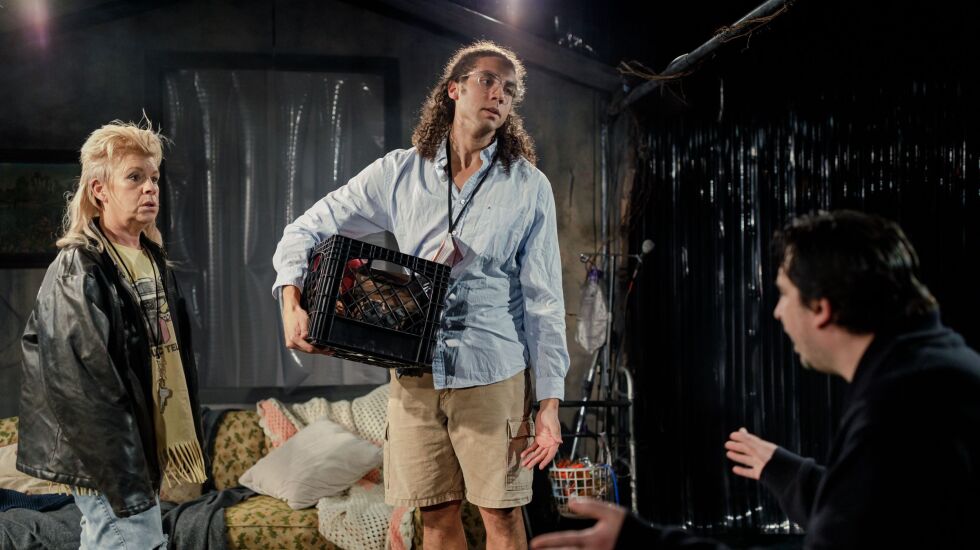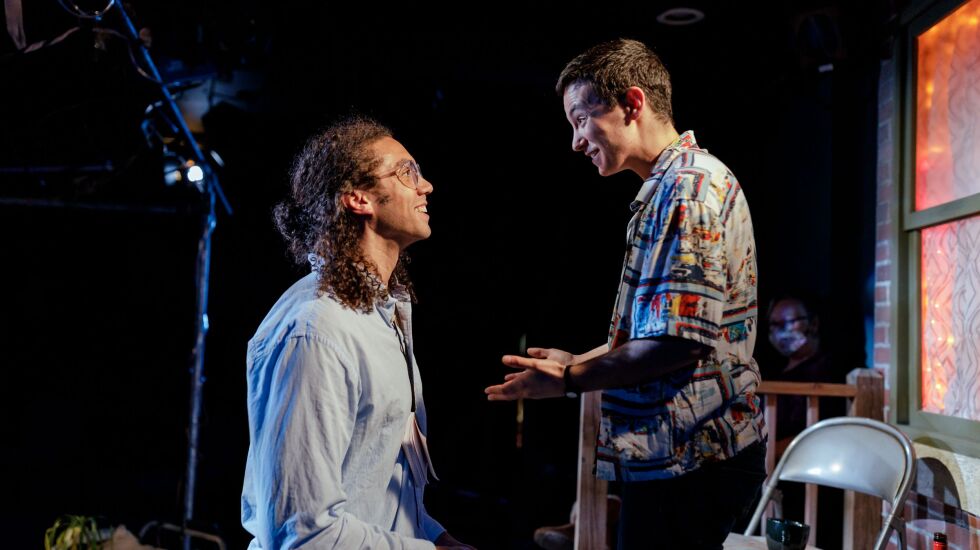
In the 1942 film “The Magnificent Ambersons,” a Midwestern family blessed with great wealth and comfort in the late 1800s sees its fortunes fall after the turn of the century. Adapted by Orson Welles (as his follow-up to “Citizen Kane”) from the Pulitzer Prize–winning novel by Booth Tarkington, the film sees three generations of Ambersons make the mistake of overconfidence in the permanence of their station. Careless with money, skeptical of economic and industrial progress, and overly concerned with keeping up appearances, the family ends in ruins.
Perhaps, though, the film’s ending (over which Welles famously fought with the studio, RKO Pictures) wasn’t the end of the family. That’s one possible interpretation of “The Malignant Ampersands,” a new play by Brett Neveu that A Red Orchid Theatre describes as a “very unofficial sequel” to Welles’ film.
While the family members in Neveu’s present-day setting allude to their ancestors’ troubles, you’d have a hard time tracing a direct lineage from the patrician melodrama of “Ambersons” to the more absurdist tendencies of “Ampersands,” which proves almost as compelling as it is bewildering.
Neveu’s narrative centers on Gabe Ampersand (Travis A. Knight), a rather timid and sheltered young man who seems to have been conscripted as a caretaker for his various ailing relatives. Here, the family hasn’t just fallen in net worth or social standing — their physical health is under a kind of karmic attack. Most of Gabe’s family are living with extreme forms of cancer, and he spends much of his time escorting his kin to doctor’s appointments or picking up and dropping off prescriptions.
When we first meet Gabe, he’s running errands at a dollar store with Summer (Emilie Maureen Hanson), a chipper and hyperactive younger girl, while on the phone with Corey (Steve Schine), the family coordinator; Gabe is trying to persuade Corey to let him buy a foosball table he spotted earlier at the Goodwill store.
Money is still tight, it’s clear, but it might now be medical bills keeping it that way. Gabe still has to take both West (John Judd), the family conspiracy crank, and Hiker (Meighan Gerachis), a sad sack who’s had both hands recently amputated, to separate checkups.

If I seem to be avoiding specifying the particular family relationships, it’s because Neveu does, too. At one point Gabe confesses to Bobbie (Jackie Seijo), a Starbucks employee he meets while waiting for another doctor’s appointment to end, that his relatives aren’t even immediate family — they’re just the last of the line, and so they’re apparently stuck with one another.
Neveu also markedly avoids using gendered pronouns for most of his characters. It seems like an intentional choice, given that some roles played by male actors in director Dado’s main cast are understudied by female actors. But it only makes the Ampersands feel more alien once you clock that everyone is referred to by their first name on every single reference.
And I haven’t even touched on the lurking “shadow creature” — a human-sized and intensely creepy puppet crafted by designer Lolly Extract — that only Summer can see.
Whatever “The Malignant Ampersands” is, it isn’t boring. Knight has the kind of appealing energy that makes you root for Gabe even as you have no idea what his objective is; Judd makes a specialty of authoritative blusterers like West. And Dado’s direction seems to tease a reveal that never comes to fruition, even with some last-minute surprises.
I spent nearly all of the play’s 95 minutes bemused but rapt, waiting for the revelation that would unlock Neveu’s intention: Is this an allegory about the cost of healthcare in America? Is it about the burden faced by familial caregivers? Is it going to link back to the Welles film it invokes in any more recognizable way?
Ultimately, I’m as agreeably baffled by Neveu’s latest work — which culminates in a truly bizarre deus-ex-machina musical number — as I would be by an equal amount of time spent on the phone with my health insurance provider trying to litigate a claim. At least “Ampersands” is more fun to try to figure out.







